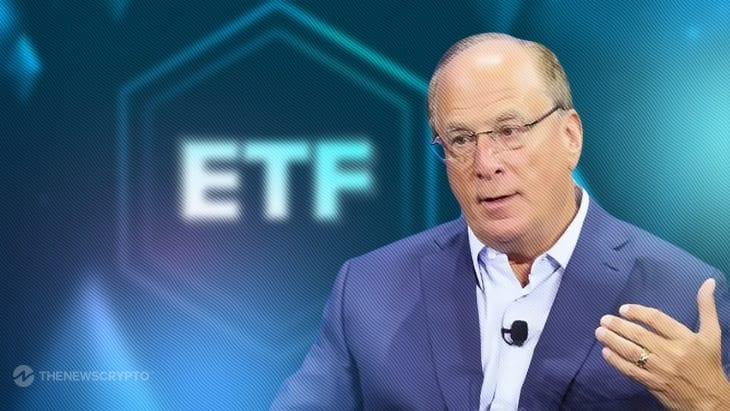
By Maria Lobanova
With the recent approval of a Bitcoin Exchange-Traded Fund (ETF) by the U.S. Securities and Exchange Commission (SEC), the year ahead promises significant advancements for the crypto space. In the wake of this regulatory milestone, the landscape of digital assets is set to expand further. Tokenization, the process of digitizing real-world assets on a blockchain, not only establishes ownership but also enhances liquidity and market accessibility.
Tokenization refers to the process of taking a real-world asset (RWA) and making a digital replica on a distributed ledger (blockchain). This replica would denote RWA ownership and also increase liquidity and market access – traditionally, you would have to go to a third party for a paper transfer, at a much-increased cost.
The use cases of tokenization are many, and it is one of the most exciting innovations in the entire Web3 space. We have moved far beyond different payment methods associated with the original cryptocurrencies, into a democratization of gigantic billion-dollar industries to make them accessible and affordable for laypeople.
Fine Wines & Fine Art
Sygnum was the first firm in Switzerland to issue tokenized securities under a new law passed in 2019, relating to the tokenization of luxury goods (such as wine and diamonds). Sygnum, teaming up with Fine Wine Capital AG, allows investors to participate in expensive luxury wine through tokenization.
Interestingly, ownership rights are transferable to others solely over the blockchain, under the new Swiss law. No physical record needs to be kept, which is in contrast with other locations and industries, particularly the property sector.
Investax.io, meanwhile, is concerned with art tokenization along with other industries. Fine art is notoriously hard to access and can be quite expensive, but tokenization can break open the market considerably. This can also help artists and other creative types, such as singers and writers.
Often, creatives have to work with third-party agents/marketers, and might not get the best deal. Through tokenization, an asset can be quickly split up and made available for the community without third-party intermediaries needing to get involved. If they are required, it is typically at a very low cost.
From Real Estate To Luxury Goods
Aside from art and fine wine, one of the most prominent use cases for RWA tokenization is real estate, given the market size and the fact that it is a necessity instead of a luxury.
Propy, for instance, already provides a fully-fledged property transfer ecosystem. Users can mint their own NFTs for their homes, buy/sell using a registered agent, and take advantage of the world’s first title and escrow system. The firm facilitated the sale of Michael Arrington’s (the TechCrunch founder) apartment in Ukraine, via NFT transfer, along with the sale of many high-value homes in the USA.
With real estate tokenization, property worth millions can be tokenized into more affordable pieces for everyday investors, helping lower costs, increasing transaction efficiency, and making the asset more liquid and affordable. But tokenization has many more applications, including within the luxury goods sector.
One of the main issues with luxury goods is counterfeiting costing luxury brand producers billions each year. With blockchain, an immutable NFT will verify ownership absolutely, practically eliminating the counterfeiting issue.
When a luxury item is created, it will come with a corresponding digital NFT to verify authenticity – counterfeiters will not be able to recreate this NFT. This is one reason why many blockchain-based luxury goods groups, such as Sygnum and Investax.io, have become prominent.
Motor Vehicle Tokenization
Luxury vehicles are another area set for tokenization. A research report from real estate agency Knight Frank indicated that the return on investment in vintage cars from 2007 to 2017 hit 330%. It’s a lot more difficult to reach these profits with other luxury goods like gold and diamonds.
In 2020, the Ferrari F12 TDF was tokenized by CurioInvest. The vehicle was created in 2015 and is worth over $1 million. Tokens were available for $1 each. The startup has further plans to tokenize over 500 luxury cars, in conjunction with the digital assets exchange MERJ.
Given the rise in car prices and the oncoming rise of electric cars, tokenization could be very useful. A family might be able to invest in a car together, through tokenization, with group usage. If a family member is to move away to a different location, the tokens could be transferred easily.
The Future of Tokenized Luxury Goods
Tokenization has many applications for luxury goods, such as wine, art, and collectibles, as well as high-value homes. It allows for increased market access, liquidity, and secure asset transfer and ownership.
A lot of value is currently absorbed when using traditional models of asset transfer, with fees that can easily eat 10% of the asset or more. And many markets are simply not accessible due to a lack of RWA tokenization.
Tokenization is the future of luxury goods and comes with few, if any, disadvantages. But it resolves no small number of problems, including counterfeiting, liquidity, accessibility, and proof of ownership.
